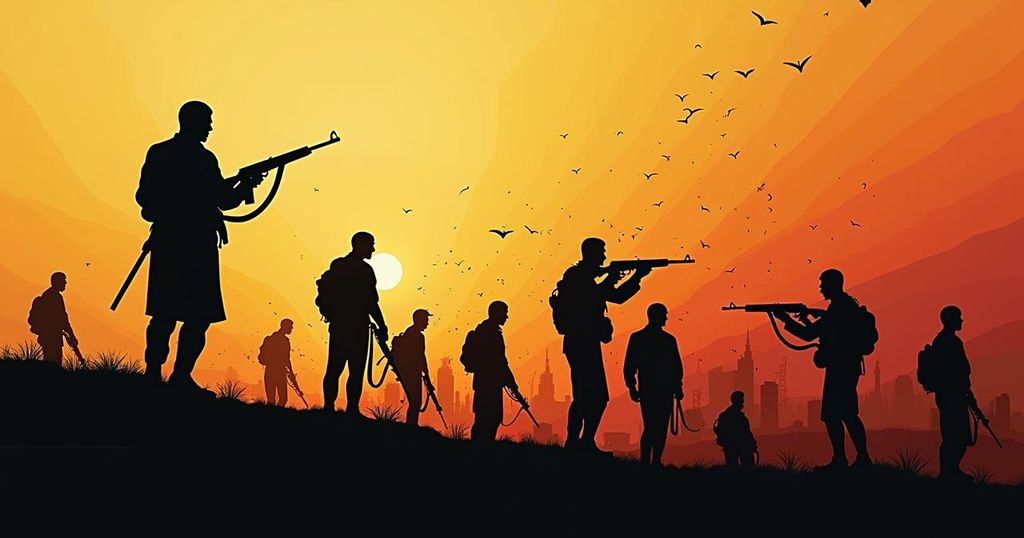The article analyzes the deeper geopolitical implications of the conflict between Israel, Hezbollah, Hamas, and Iran, asserting that it reflects a modern struggle between a coalition advocating for inclusion and cooperation on one side and a coalition of authoritarian resistance on the other. This dynamic is particularly evident in the ongoing conflicts in Ukraine and Gaza, which illustrate the broader struggle for international influence.
To comprehend the significance of Israel’s recent military actions against Hezbollah, one must consider the broader implications for global relationships, particularly in the context of an ongoing geopolitical struggle. This conflict is not merely a regional issue but part of a larger framework that has emerged following the Cold War. It pits a coalition favoring economic cooperation and liberal values against a faction led by authoritarian regimes that resist such integration. Following the incursion of Hamas into Israel on October 7, the narrative has transitioned from post-Cold War dynamics to a new phase characterized by a post-post-Cold War struggle. This new conflict involves two distinct alliances: the coalition of inclusion, comprised of nations advocating for economic interdependence and democratic values facilitated by U.S. leadership, and the coalition of resistance, led by nations such as Russia, Iran, and North Korea, which emphasize militarization and authoritarian governance. The geopolitical landscape is further complicated by China, which finds itself in a precarious position, benefiting economically from the coalition of inclusion while sharing authoritarian traits with the coalition of resistance. Examining the conflicts in Ukraine, Gaza, and Lebanon through this lens reveals underlying motivations. Ukraine’s aspiration to integrate with the European Union is paralleled by Israel and Saudi Arabia’s efforts to normalize relations in the Middle East. Opponents to these movements, particularly Russia, Iran, and their affiliates, seek to maintain their grip on power by thwarting any progress toward an inclusive global community. A successful integration of Ukraine into Europe would significantly diminish Russia’s influence, while the normalization of ties between Israel and Saudi Arabia would severely undermine Iranian interests and the stability of its proxies across the region. Thus, the outcomes of these regional conflicts are intertwined with the fates of larger international alliances, making them critical junctures in this evolving global struggle.
The article discusses the current geopolitical tensions involving Israel, Hezbollah, Hamas, and Iran within a framework that transcends traditional Cold War dynamics. It proposes that a new geopolitical paradigm is emerging, characterized by two contrasting coalitions: one promoting inclusion through economic integration and cooperation and the other resisting such movements through authoritarian means. This context is vital for understanding recent conflicts in the Middle East and Eastern Europe, reflecting broader international concerns about power, influence, and governance.
In conclusion, the recent military confrontations involving Israel and Hezbollah signify more than mere regional disputes; they are emblematic of a larger geopolitical contest. This contest unfolds between varying ideologies regarding governance, power, and international cooperation. The outcomes of these conflicts could substantially reshape global alliances, potentially isolating authoritarian regimes while promoting greater integration among supportive nations.
Original Source: www.nytimes.com






